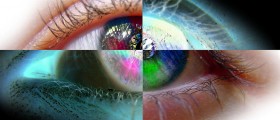
Laser eye surgery is performed with the help of a computer controlled laser. Laser eye surgery can be used for shortsightedness (myopia), farsightedness (hyperopia) and astigmatism. This surgery is the most successful vision correction procedure worldwide. Still, laser eye surgery entails several risk factors that should be taken into account before one opts for this type of treatment. Patients who are considering laser eye surgery should discuss benefits and risks of the treatment with an ophthalmologist.
Eye Surgery Types
Photorefractive keratectomy (PRK) and laser assisted in situ keratomileusis or LASIK are the two main laser eye surgeries. Both types of eye surgery are used to reduce a patient’s dependence on contact lenses or glasses. The LASIK is a form of refractive eye surgery that uses laser technology. LASIK helps to improve vision in patients with hyperopia, myopia and astigmatism.
The photorefractive keratectomy is also known as advanced surface ablation and is another commonly used eye surgery. However, the LASIK is more popular than PRK because it has quicker recovery time comparing to photorefractive keratectomy. Also, the LASIK eye surgery causes significantly less pain during the procedure than photorefractive keratectomy.
Benefits of Laser Surgery
Laser eye surgery offers many benefits. One of the main benefits of laser eye surgery is that it permanently corrects vision thus improving quality of life. Eye examinations, glasses, contact lenses, eye drops and solutions are very expensive and a person can save a lot of money after having laser eye surgery.
Also, many people find wearing contact lenses quite annoying. Contact lenses require constant care plus can irritate the eyes and cause an infection. People who have used glasses can fully enjoy in activities such as swimming, hockey and driving after they undergo laser eye surgery.
Risks of Laser Eye Surgery
Despite numerous benefits of laser eye surgery, some patients may also experience complications of the treatment. Dry eye is one of the common risks of laser eye surgery. Dry eyes occur due to damage to the corneal nerves that results in reduced production of tears. This can affect vision and contribute to inflammation and infection. Dry eyes can be permanent or temporary side effect of laser surgery and can be treated with artificial tear supplements.
More serious complication of laser eye surgery is corneal ectasia, the condition featured by accumulation of fluid in the eye. This complication usually requires the corneal transplantation.
Severe vision loss is uncommon but possible side effect of laser eye surgery. More common risks of the procedure include night vision problems, blurred vision and double vision.
- www.nhs.uk/live-well/healthy-body/laser-eye-surgery/
- medlineplus.gov/lasereyesurgery.html
- Photo courtesy of Georgebog by Wikimedia Commons: commons.wikimedia.org/wiki/File:Eye_(PSF).png

















Your thoughts on this
Loading...